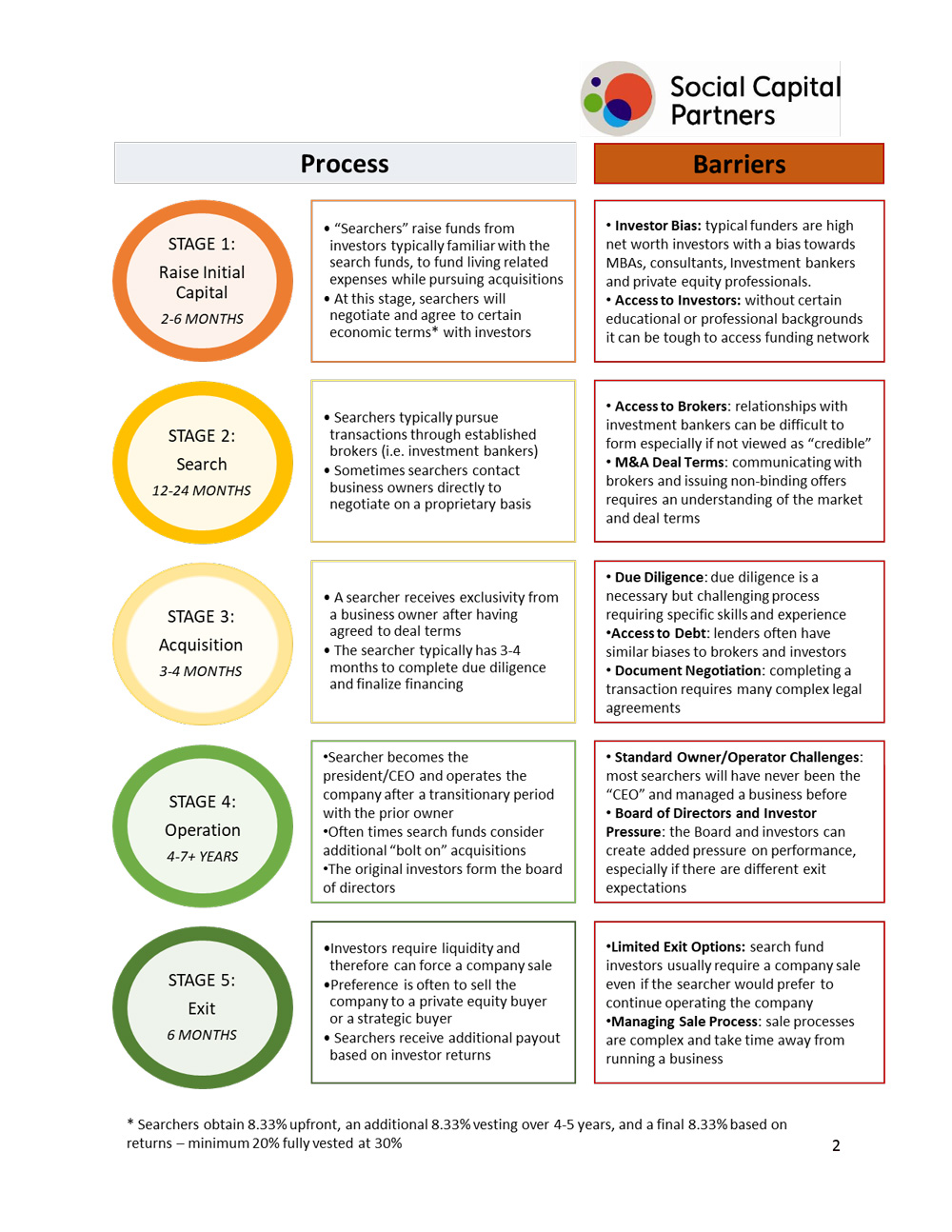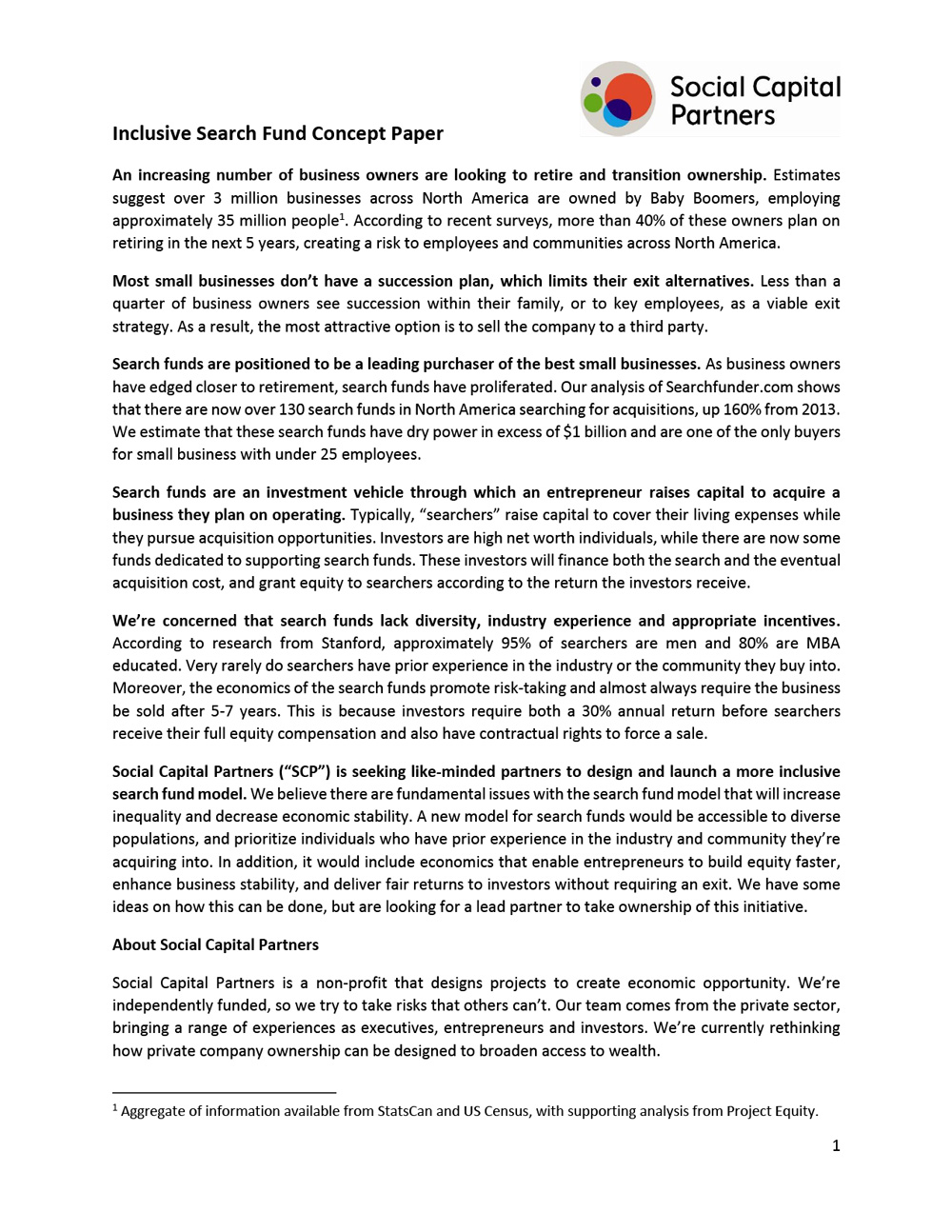Search funds allow entrepreneurs without capital to buy small businesses. However, only an exclusive club can access the financing to do so and are often forced to re-sell their businesses. We’ve put a twist on the search-fund model to make it more inclusive and long-term.

“We’re concerned that search funds lack diversity, industry experience and appropriate incentives. According to research from Stanford, approximately 95% of searchers are men and 80% are MBA educated. Very rarely do searchers have prior experience in the industry or the community they buy into.”
Share with a friend
Related reading
Watch the video: Why do Canadians work so hard and get so little?
Low productivity means lower wages and a lower standard of living. Canada does need to boost productivity—but we keep trying the wrong things. Watch SCP CEO Matthew Mendelsohn explain the productivity conversation Canada actually needs to have.
Market study submission: Competition in financing for Canada’s SMEs
Small- and medium-sized businesses (SMEs) face significant barriers to accessing capital and we believe that the lack of competition in the banking sector is one of several important contributing factors. We provided comment on the Competition Bureau's upcoming market study on SME financing because we believe that unlocking capital for SMEs and entrepreneurs will strengthen the Canadian economy, bolster our sovereignty and provide more Canadians with pathways to building wealth. We look forward to seeing how the evidence collected will help inform policymakers interested in tackling this issue.
Watch the video: Why would a company sell to its employees?
Canada is facing a $2-trillion business handoff. What if employees owned more of it? In this video, our Director of Policy Dan Skilleter explains why a company would sell to its own employees, how it happens and who stands to benefits. Spoiler alert: employee-owned companies are shown to be 8-12% more productive, share more wealth with their workers, keep businesses Canadian-owned and shore up the resilience of local communities and the broader economy.



